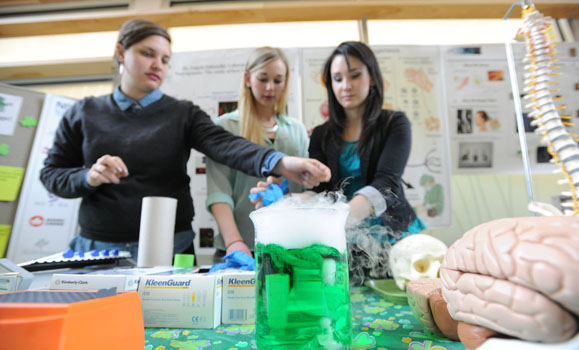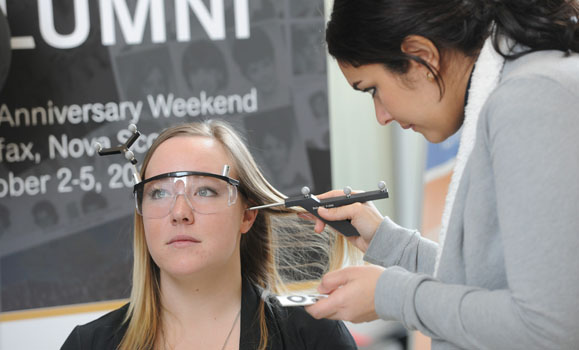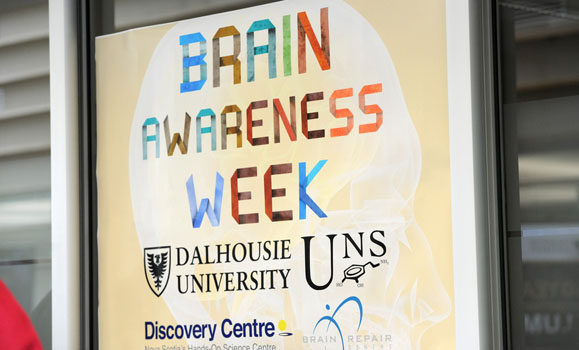With a black cap attached to his head, first-year Dalhousie student Danny Kogan awaited instructions for how to drive a robot using just his brain.
“Visualize the movement, think about how long it takes, the pressure on your fingers,” instructed Sean McWhinney, who works in the Laboratory for Brain Recovery and Function in Dal’s School of Physiotherapy.
Sure enough, without moving his left hand, but just imagining the movement, Kogan’s brain drove the little black robot towards the left.
The robot, which provides feedback as to whether motor imagery is being done properly, was just one of many interactive exhibits at Tuesday’s Brain Fair in the Life Sciences Research Institute atrium.

The Brain Fair was part of Brain Awareness Week, being held this week across Halifax to raise awareness and relay information to the general public about brain-related research that's happening right here in our region.
Dr. Shaun Boe, a researcher with the Laboratory for Brain Recovery and Function and an organizer for Brain Awareness Week, said the Brain Fair event was targeted towards people of all ages, but particular youth, as many daycares and March break programs were invited to attend the fair.
“It’s to give them information in a way that’s easy to understand,” said Dr. Boe. He explained that most of the research being shared is publicly funded.
Sharing knowledge
Hayam Hamodat, a third-year Dalhousie student and co-coordinator of Brain Awareness Week, said this event is important for bridging the gap between the science world and the public.
“It’s an opportunity for us to transfer our science research into more simple knowledge,” she said. “There’s no point in science if you don’t share your knowledge.”
The researchers at the Brain Fair certainly had knowledge to share.
Students in Dal’s Medical Neuroscience program set up a science challenge for fair participants with prizes for the fastest completion times. They also had pieces of anatomy and the brain on display, as part of their degree is teaching human anatomy to students in other professional programs.
“It’s a huge interest of ours; we really enjoy our teaching responsibilities,” said Julia Harrison, a student in the program.

Using the brain
Franzi Kintzel, a research assistant in the Cognitive Health and Recovery Research Laboratory, stood in front of the interactive games set up at the table, part of the Cognitive Repair Kit that the lab is developing.
“We are trying to develop tools that are fun and unique for people that are living with cognitive difficulties after a stroke or living with Parkinson’s disease,” Kintzel said.
One game, called the SpyTrain, is a touch screen game where people look at a photo of a spy and then have to pick out the correct spy of many similar looking spies who get off a train. The game helps to improve visual search and memory.
Other events taking place this week for Brain Awareness Week include film screenings and a silent auction with photographs of actual brain tissue stained in different ways. Learn more at the week's website.


